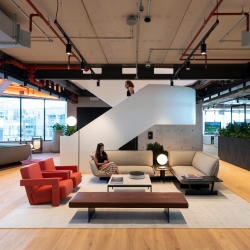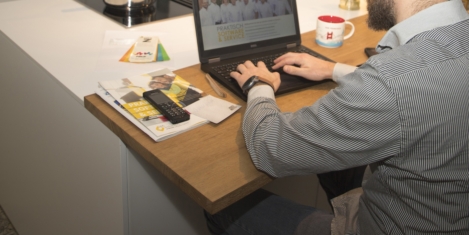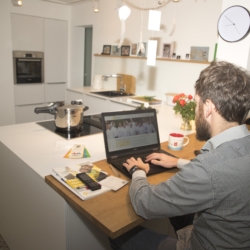To provide the best experiences, we use technologies like cookies to store and/or access device information. Consenting to these technologies will allow us to process data such as browsing behaviour or unique IDs on this site. Not consenting or withdrawing consent, may adversely affect certain features and functions.
The technical storage or access is strictly necessary for the legitimate purpose of enabling the use of a specific service explicitly requested by the subscriber or user, or for the sole purpose of carrying out the transmission of a communication over an electronic communications network.
The technical storage or access is necessary for the legitimate purpose of storing preferences that are not requested by the subscriber or user.
The technical storage or access that is used exclusively for statistical purposes.
The technical storage or access that is used exclusively for anonymous statistical purposes. Without a subpoena, voluntary compliance on the part of your Internet Service Provider, or additional records from a third party, information stored or retrieved for this purpose alone cannot usually be used to identify you.
The technical storage or access is required to create user profiles to send advertising, or to track the user on a website or across several websites for similar marketing purposes.
 Mobile access company Kisi has released their annual study examining which cities around the world promote the most holistic work-life balance. With the goal of enhancing an individual’s personal and professional life through technological innovation, Kisi has endeavored to find out which coveted metropolises worldwide are meeting their residents’ lifestyle demands to make their city a more attractive place overall to work and live. More →
Mobile access company Kisi has released their annual study examining which cities around the world promote the most holistic work-life balance. With the goal of enhancing an individual’s personal and professional life through technological innovation, Kisi has endeavored to find out which coveted metropolises worldwide are meeting their residents’ lifestyle demands to make their city a more attractive place overall to work and live. More →









 When it comes to conversations about work and workplaces, the past year has offered a fully immersive experience. Everybody now has an opinion. Inevitably some of them are better informed and more rooted in experience than others. So, after a full year of talk and as we return to some form of routine working life, the time has come to take stock. Few organisations and people will remain untouched by the sudden shift in attitudes towards working life, so we asked four workplace experts for their views on the current state of play.
When it comes to conversations about work and workplaces, the past year has offered a fully immersive experience. Everybody now has an opinion. Inevitably some of them are better informed and more rooted in experience than others. So, after a full year of talk and as we return to some form of routine working life, the time has come to take stock. Few organisations and people will remain untouched by the sudden shift in attitudes towards working life, so we asked four workplace experts for their views on the current state of play. 
 New research from
New research from 
 Only 3.7 percent of UK Gen Zers value flexible and hybrid working policies as most important to them in their future company, claims a poll of over 4000 UK Gen Zers from
Only 3.7 percent of UK Gen Zers value flexible and hybrid working policies as most important to them in their future company, claims a poll of over 4000 UK Gen Zers from 
 The COVID-19 pandemic has accelerated the transition away from traditional workforce models, and 56 percent of companies are expecting to shift more of their roles to contingent, project or contract work as a result, according to a new report by
The COVID-19 pandemic has accelerated the transition away from traditional workforce models, and 56 percent of companies are expecting to shift more of their roles to contingent, project or contract work as a result, according to a new report by 
 A report published by single parent charity,
A report published by single parent charity, 
 Long working hours led to 745,000 deaths from stroke and ischemic heart disease in 2016, a 29 per cent increase since 2000, according to the latest estimates by the World Health Organization and the International Labour Organization published in
Long working hours led to 745,000 deaths from stroke and ischemic heart disease in 2016, a 29 per cent increase since 2000, according to the latest estimates by the World Health Organization and the International Labour Organization published in 
 Optimism among workers in the UK has been shaken in the wake of the COVID-19 pandemic, claims the
Optimism among workers in the UK has been shaken in the wake of the COVID-19 pandemic, claims the 
 A new report launched by the
A new report launched by the 









May 25, 2021
The power of nudge: How behavioural science and AI can improve workplace wellbeing
by Richard Gregory • Comment, Technology